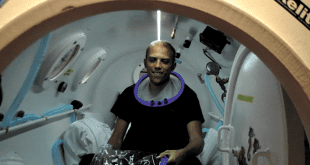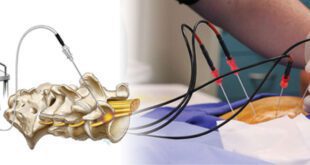 Did you know that the yearly calendar we use today first came into use in the late 1500s? For centuries now, people have relied on calendars to structure their lives. These vital tools help us prioritize our time, stay productive and keep us on task.
Did you know that the yearly calendar we use today first came into use in the late 1500s? For centuries now, people have relied on calendars to structure their lives. These vital tools help us prioritize our time, stay productive and keep us on task.
Whether you prefer digital or paper formats, as you turn the page on your 2024 calendar this January, take some time to prioritize your health and well-being. Plan ahead and schedule appointments for recommended wellness checkups and cancer screenings.
Thanks to ongoing research, screening tests are now available for many types of cancer. These tests are effective at finding cancer, often before signs or symptoms appear. When detected early, certain cancers are much easier to treat, preventing thousands of cancer cases and deaths. Early diagnosis and treatment is a substantial factor in surviving cancer.
Florida Cancer Specialists & Research Institute (FCS) urges everyone to talk with their physician about cancer screenings and follow recommended guidelines. Here are some of the most common cancer screening recommendations:
Skin Cancer: Skin cancer is the most common cancer in the U.S for both men and women. Screening involves checking your skin and any moles for changes that could be signs of cancer. An annual skin check by a dermatologist or your primary care provider is recommended, especially for those with a family history of skin cancer.
Breast Cancer: In addition to monthly self-examinations
(encouraged for adult women at any age), the American Cancer Society recommends that starting at age 40, all women have annual screening mammograms. Talk to your doctor about what is right for you, based on your own family health history and risk factors.
Cervical Cancer: The National Cancer Institute advises women to receive a Pap test (Pap smear) beginning at age 21 and continuing until age 65. Women from 21 to 29 should have a Pap smear every three years. Beginning at age 30, a Pap test combined with human papillomavirus (HPV) testing (HPV/Pap cotest) is recommended every five years.
Colorectal Cancer: Colonoscopy screening for colorectal cancer should start at age 45 and be done every 10 years, unless recommended more often by your doctor, up until age 75. This type of screening not only detects cancer early, but in many cases it can prevent cancer from developing by identifying and removing polyps (abnormal, precancerous growths within the colon).
Lung Cancer: Low-dose CT scanning is recommended for some people who are at higher risk for lung cancer. This group includes adults, ages 50 to 80, who have a 20 pack-year smoking history and who currently smoke or have quit smoking. To determine a pack-year score, multiply the number of packs smoked per day by the number of years smoked. So, if you smoked two packs a day for 20 years, your pack-year score would be 40.
Prostate Cancer: The PSA test is used to screen men for prostate cancer; however, it is not clear if the benefits of testing all men outweigh the risks, such as finding and treating slow-growing cancers that do not require treatment. It is important to talk with your doctor about the risks and potential benefits, based on your personal and family history.
When It Comes to Lifestyle Choices, Little Things Can Make a Big Difference
When it comes to preventing cancer, little things can make a big difference, especially when it comes to making healthy lifestyle choices.
SMOKING AND CANCER
In the U.S., 80 to 90 percent of all lung cancer deaths are related to cigarette smoking, according to the Centers for Disease Control and Prevention. Tobacco products, including cigarettes, e-cigarettes, cigars, pipes and chewing tobacco, have been linked to several other types of cancer, including colorectal, bladder, breast, throat, cervical, mouth and esophageal.
If you’re not a smoker, don’t start. If you smoke, it’s never too late to quit. Your health will improve, and you’ll reduce your risk of cancer, heart disease and other illnesses. An effective first start, even if you’ve tried before, is to prepare a quit plan. A wide range of tools, tips and other resources can be found on the website SmokeFree.gov.
ENJOY THE SUN SAFELY
The majority of all skin cancers are caused by exposure to the sun’s ultraviolet light rays. For maximum protection, oncologists recommend applying a broad-spectrum, water-resistant sunscreen with a sun protection factor (SPF) of 30 or higher to all skin that is not covered by clothing. Clothing items with an ultraviolet protection factor (UPF) number on the label are now widely available. A wide-brimmed hat and sunglasses with UV protection are also recommended. Exposure to artificial UV rays with the use of tanning beds or sunlamps also increases the risk of skin cancer and should be avoided.
EAT HEALTHY & KEEP MOVING TO PREVENT CANCER
There is growing evidence what we eat plays a significant role in some types of cancer. A diet high in fruits, vegetables, beans and whole grains, and low in red meat, processed foods and sugar, is recommended to help reduce cancer risk. Limit alcohol consumption to no more than two drinks a day for men and one drink a day for women. Aim for at least 30 minutes of physical activity each day. Exercise can help to control your weight and avoid obesity, with the added benefits of increased energy, reduced stress and a healthy boost to the immune system to help fight cancer and other diseases. Getting and staying healthy is worth the effort – make it count in 2024!
WORLD-CLASS CANCER TREATMENT, CLOSE TO HOME
About Florida Cancer Specialists & Research Institute, LLC: (FLCancer.com) Founded in 1984, FCS has built a national reputation for excellence that is reflected in exceptional and compassionate patient care, driven by innovative clinical research, cutting-edge technologies and advanced treatments, including targeted therapies, genomic-based treatment and immunotherapy. Our highest values are embodied by our outstanding team of highly trained and dedicated physicians, clinicians and staff.
Florida Cancer Specialists & Research Institute
Hudson
7651 Medical Dr
Hudson, FL 34667-6594
FLCancer.com/Hudson
Hudson North
14100 Fivay Rd, Ste 380
Hudson, FL 34667-7181
FLCancer.com/HudsonNorth
Trinity Cancer Center
9320 State Road 54
Trinity, FL 34655-1808
FLCancer.com/Trinity
Wesley Chapel
26823 Tanic Dr
Wesley Chapel, FL 33544-4605
FLCancer.com/WesleyChapel
Zephyrhills Green Slope
7315 Green Slope Dr
Zephyrhills, FL 33541-1314
FLCancer.com/ZGS
For more information, visit FLCancer.com
 Central Florida Health and Wellness Magazine Health and Wellness Articles of the Villages
Central Florida Health and Wellness Magazine Health and Wellness Articles of the Villages



